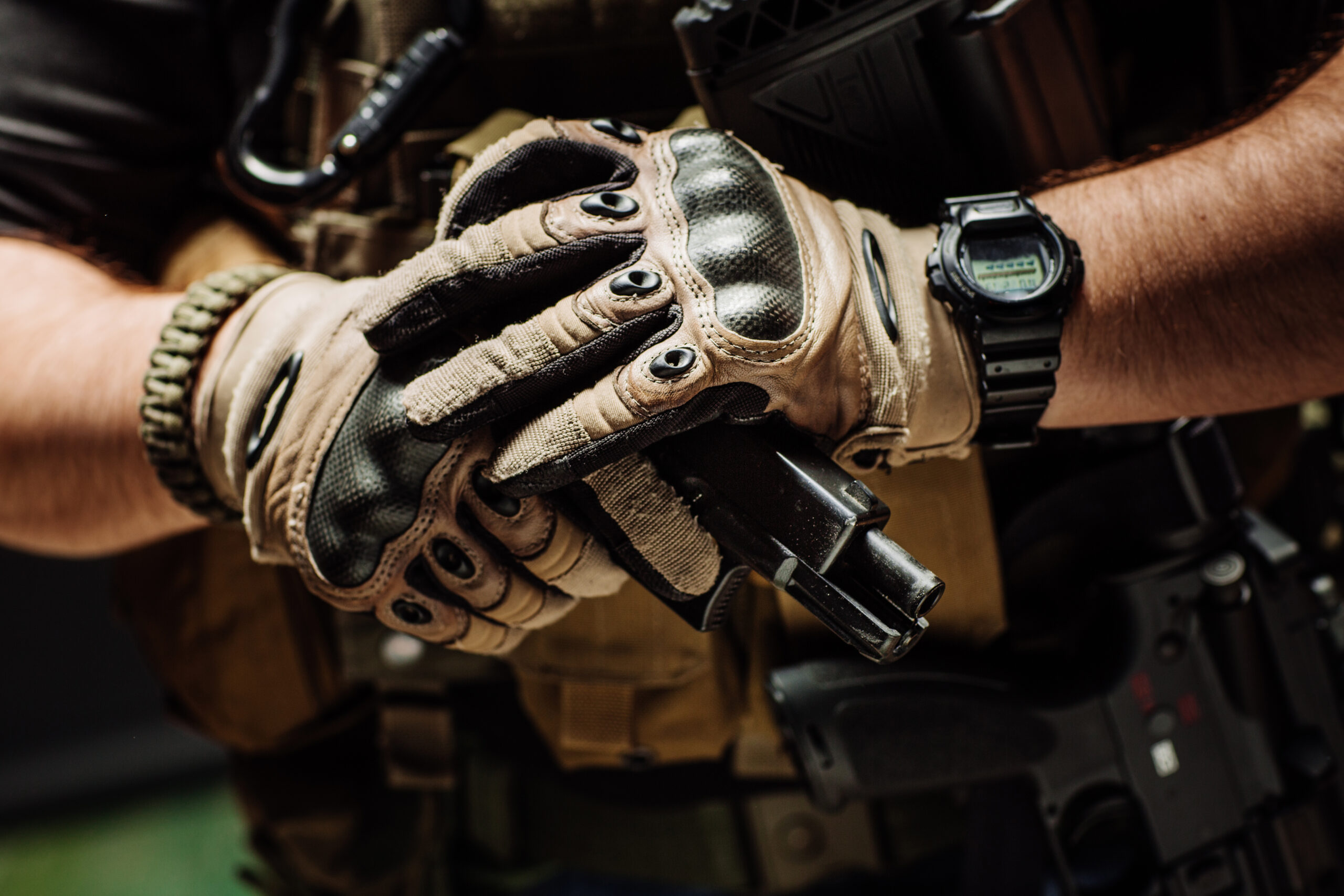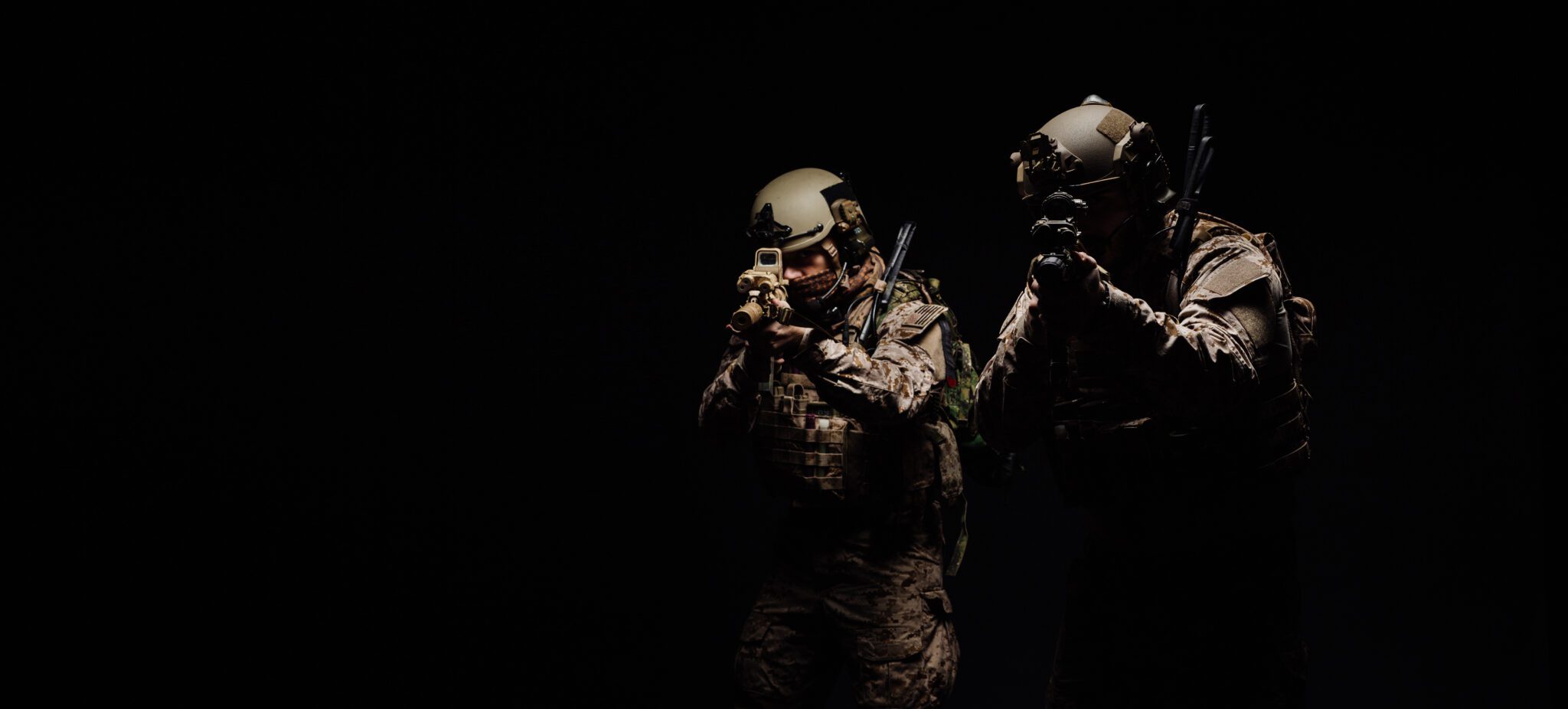More and more mercenaries or contractors are being used in various war contexts. These are private soldiers, employees of security companies, hired by States to carry out a wide range of tasks. Over time, these paramilitary organisations have become real parallel armed forces, increasingly used by superpowers to manage conflicts when they do not want to use their own soldiers, but also to control areas of strategic interest. In addition to the cost savings (a private company costs less than regular forces), there is the image and social component. The loss of a regular soldier is always less acceptable, especially to Western countries, than the loss of a mercenary. Their turnover is estimated at around 400 billion dollars.
And the number of States employing mercenaries is growing. As the New York Times explains, although no NATO soldiers are formally active in Ukraine, convoys of weapons and aid to the population are being delivered by soldiers under contract to Western States, often NATO veterans now working in the private sector.
For European States, the need for these services has become apparent as armies began to reduce their numbers. According to the Italian portal Geopolitica.info, the shrinking of armies has had a twofold effect on the private security market. On the one hand, the dismantling of a large part of the military apparatus has created a huge amount of manpower in the sector, and on the other hand, it has created a demand for services that could support national armies in their operations. In addition, the outbreak of conflicts in the developing world as a result of decolonisation has also increased the global demand for specialised labour in the sector: countries undergoing modernisation have been willing to invest money in specialists who can help them achieve Western standards.
On the cover photo and the next one, photos by Presslab for Shutterstock.com
The Blackwater Academi USA
The Wagner Group
WHO DOES WHAT: Attempts to regulate mercenary activities
FOCUS 1: Who the UN Convention defines as a mercenary
FOCUS 2: Private security companies in China
The Blackwater Academi USA
In recent years, the United States has also increased its use of private military companies in various theatres of war. In Afghanistan, for example, according to an investigation by the Washington Post, the number of casualties among contractors was much higher than among the military, reaching 3,814. The most important US company is Blackwater (now Academi), founded on 26 December 1996 by Erik Prince, a former Navy Seal from a wealthy family of evangelical Christians. In 1998, Prince opened the first training centre with simulations of various war scenarios. The company has never hidden the fact that it works for the US State Department. In fact, the group provides thousands of military operators, mainly for the protection of the diplomatic corps and for technical and logistical support. It is estimated that in about ten years, Blackwater has received around two billion dollars from Washington to support its troops in Afghanistan and Iraq, as well as 600 million dollars from the CIA for covert operations. Since its inception, the company has attracted much criticism and condemnation for the aggressive manner in which it conducts its operations.
Numerous episodes of violence and abuse are collected in ‘Blackwatergate’, a voluminous report resulting from the work of the US Congressional Inquiry Commission, which highlighted that Blackwater had been involved in at least 195 shootings since 2005 and that its men had fired first in more than 80% of cases. The report also accused the US State Department of failing to monitor the agency’s work and hold it accountable for the numerous incidents. From 2015 to 2016, Blackwater operated in Yemen alongside the coalition of states led by Saudi Arabia and the United Arab Emirates against the Houthis.

The Wagner Group
The Wagner Group was founded in Russia in 2014 by Yevgeny Prigozhin. It is officially a private military company, but it has close ties to the Russian security apparatus, particularly its intelligence services. The militia was born out of the dissolution (caused by a series of scandals) of the Slavonic Corps, another private military company operating in Syria.
According to various estimates, it had up to 50,000 fighters in Ukraine after the invasion in February 2022. Estimates also suggest that 80% of the militia were recruited in prisons, with the rest being mercenaries. The group’s name was chosen by its first leader, Dmitri Utkin, a former military intelligence officer, as a tribute to the composer Hitler loved. In fact, the Russian Legion is inspired by neo-Nazism and Slavic neo-paganism, and appears to have links with far-right groups in Russia and Europe.
Wagner was first deployed in support of separatist forces during the Donbass war between 2014 and 2015, and then fought in Libya, Syria and Mali. In 2018, the brigade then arrived in Libya in support of Khalifa Haftar and has been active in the war in the Central African Republic since 2021, where it has carried out torture, ill-treatment and murder of civilians, according to Human Rights Watch. The group is also involved in Sudan, alongside Mohamed Dagalo of the Rapid Support Forces (RSF), who are clashing with forces loyal to the army and de facto president Abdel Fattah al-Burham.
Moscow is reportedly spending up to $100 million a month on the mercenary force. The Russian government has no official ties to the group, but the Duma passed a law in March 2023 that punishes anyone who publishes ‘false information’ with up to 15 years in prison and up to 7 years for defaming any participant in the campaign, not just the regular armed forces. According to many analysts, with the 2022 invasion, Wagner has underlined his autonomy from Moscow and is seen by Russians as a patriotic organisation opposed to the oligarchs. This is why he has rivals in the Russian military leadership, such as Defence Minister Sergei Shoigu and Chief of the General Staff Valery Gerasimov.
After the silence that followed the uprising against the Kremlin in June 2023, Wagner reappeared in Africa. In fact, Russian mercenaries evacuated a group of Chinese citizens from a gold mine in the Central African Republic to save them from some local militiamen. According to the South China Morning Post, the operation took place in early July at a Chinese-run mining site near Bambari in the Central African Republic.
WHO DOES WHAT
Attempts to regulate mercenary activities
In international law, the use of private militias is regulated by the ‘International Convention against the Recruitment, Employment, Financing and Training of Mercenaries’, adopted by the UN General Assembly on 4 December 1989. To date, it is the only universally applicable instrument against mercenary activities and private military and security companies. The Convention, which is based on Article 47 of the First Additional Protocol to the Geneva Conventions, only entered into force on 20 October 2001. According to observers, it suffers from numerous limitations. One of these is the definition of mercenary activity itself, which does not take into account the category of PMCs, Private Military Companies (see Focus 1).
Another concrete attempt to define the international legal framework in which private militias operate is the ‘Montreux Document’, which was launched in 2008 at the initiative of the Swiss government and the International Committee of the Red Cross. It is an agreement between the signatory countries on the issue of private military and security companies in war zones, in which they list some 70 recommendations for good Government practice in dealing with the private security industry. Several provisions also set out legal obligations for the private security companies themselves. It is important to note that the focus of the document is on periods of armed conflict, but the principles are also explicitly relevant to situations of unarmed conflict. However, the document has several shortcomings: it is non-binding and non-legal, in that it neither creates nor modifies legal obligations.
Another attempt at regulation is the International Code of Conduct for Private Security Providers (ICOC), which is aimed directly at private security companies. Its members ‘undertake to provide security services in a responsible manner that upholds the rule of law, respects human rights/humanitarian law and protects the interests of their clients’. The International Code of Conduct Association (ICoCA) is a multilateral initiative consisting of three pillars representing states, private security companies and civil society organisations.
FOCUS 1
Who the UN Convention defines as a mercenary
Article 1 of the UN Mercenaries Convention defines who can be considered a mercenary, according to five conditions that he/she is specifically recruited, locally or abroad, for the purpose of fighting in an armed conflict; that he/she is motivated to take part in hostilities essentially by a desire for personal gain; and that he/she has been promised by one of the parties to the conflict compensation in excess of that paid to combatants of the same rank and function belonging to the armed forces of that party; that he is neither a national of one of the parties to the conflict nor resident in a territory controlled by one of the parties to the conflict; that he is not a member of the armed forces of one of the parties to the conflict; that he has not been sent on an official mission as a member of the armed forces of a State which is not a party to the conflict. All five conditions must occur simultaneously.
FOCUS 2
Private security companies in China
China is also making increasing use of contractors. China has been developing a private security sector since the mid-1990s, but these companies operated in a legal limbo until they were legalised in 2009. According to the legislation, private security companies operating in the country are forced to give up their private status and must therefore be wholly state-owned or have a state shareholding of at least 51% of their total capital. The sector has exploded since 2009. It is estimated that there were more than 5,000 private security companies (PSCs) in the country in 2018. The vast majority still operate exclusively in China, but some have started to offer their services abroad. The Mercator Institute for Chinese Studies (MERICS) pointed out in a 2018 report that out of 7,000 registered Chinese PSCs, around 20 of them provide services outside China’s borders. It seems that the main driver of the internationalisation of private militias is the Belt and Road Initiative, the project involving 65 countries and about $900 billion in planned investments worldwide. In many of these countries, Chinese companies do not feel adequately protected by local security forces and are increasingly using private militias. Various groups are also active in Africa. Chinese companies operating on the African continent include Beijing DeWe Security Service, Huaxin Zhong An Security Group and China Security Technology Group.





















